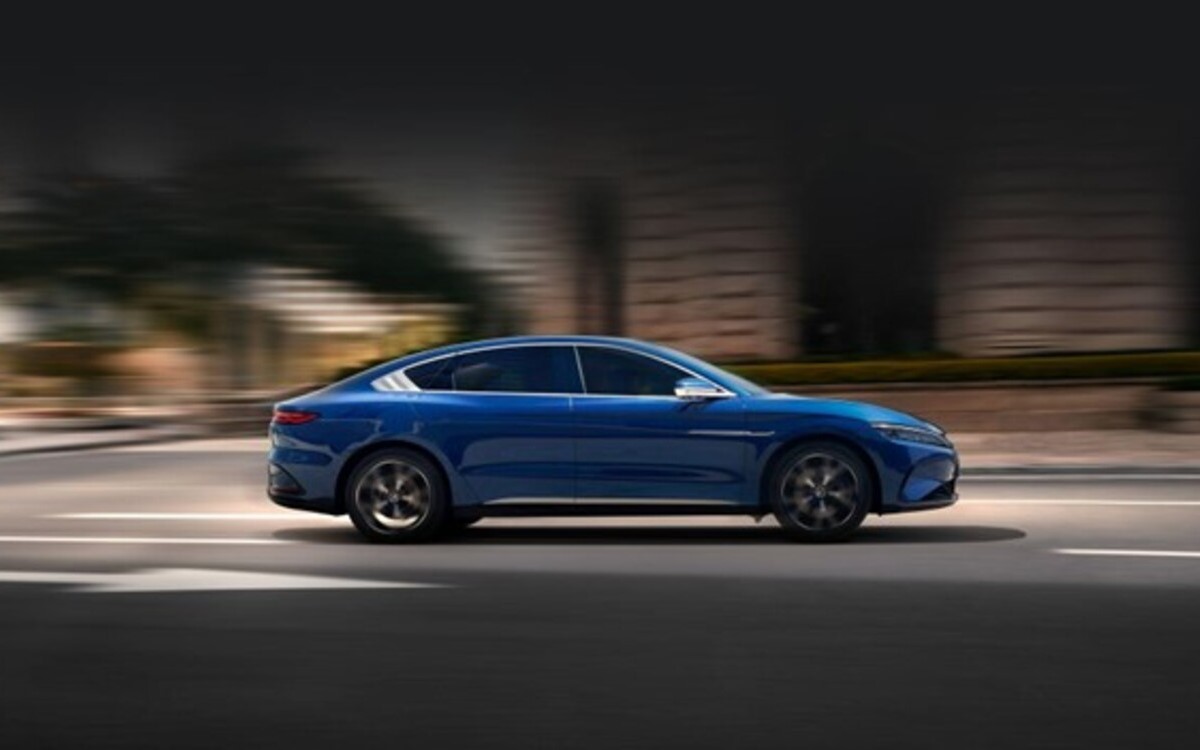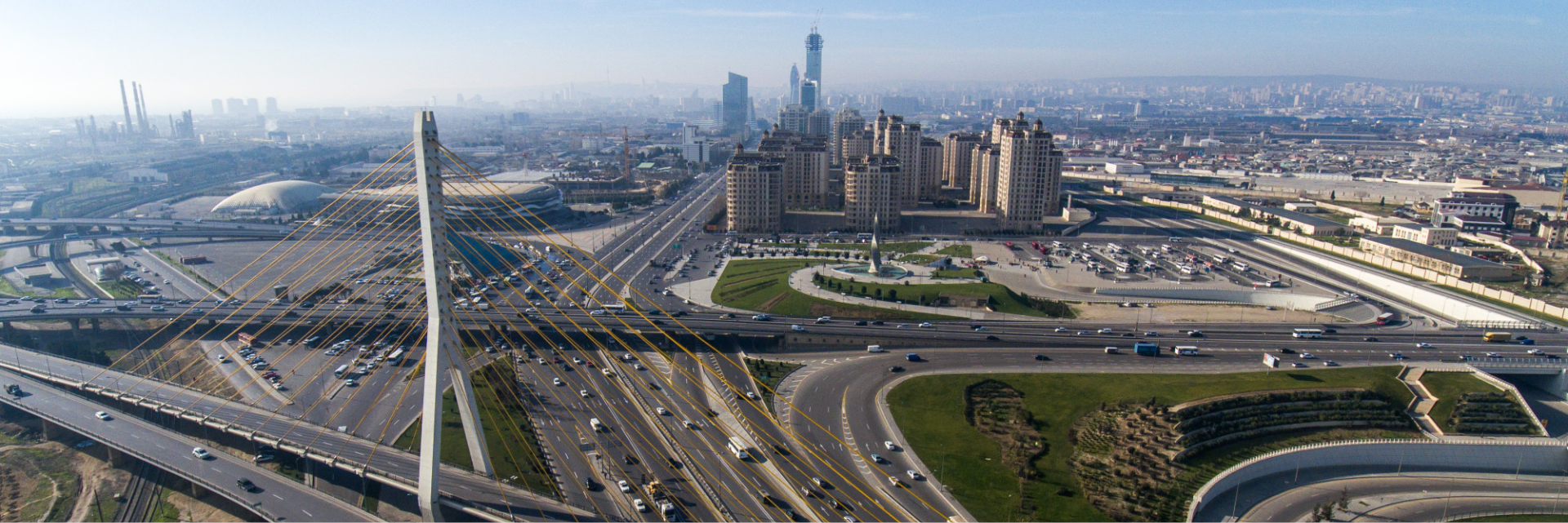
Guide to the New EV Charging Charges Structure in the UAE
As the UAE accelerates its shift toward sustainable mobility, one thing is becoming abundantly clear, electric vehicles aren’t just a passing trend; they’re the future. Backed by strong government support and a fast-growing charging network, the transition from internal combustion engines to battery-powered alternatives is now more accessible than ever.
But with this progress comes the need for smarter systems. In response to growing demand and varying charging rates, a bold and balanced update to the EV charging structure was introduced in September 2024.
Many MOOV By Al-Futtaim car subscribers who subscribe to electric cars in UAE often have questions on EV charging rates, so in this guide, we will walk you through the newly standardized electric car charging price in UAE, breaking down what it means for drivers today and how you can better budget and benefit under this new structure.
Our customers that subscribe to electric cars in UAE often have questions on EV charging rates.
Understanding the New EV Charging Rates

Previously, EV charging costs fluctuated considerably between providers, causing confusion for drivers. With the introduction of Cabinet Resolution No. 81, the UAE has now established a clear and consistent pricing framework, promoting fairness, predictability, and clarity across all charging stations.
Here’s a comparison of the current pricing for different types of facilities:
Home Charging: Cost varies by provider but averages AED 0.305 per kilowatt hour (kWh)
Slow Charging (Commercial AC Charging): AED 0.70 per kWh + VAT (approx. AED 0.735)
Fast DC Charging: AED 1.20 per kWh + VAT (approx. AED 1.26)
This clear structure helps drivers calculate charging fees with confidence, compare costs across public and private stations, and plan their power-ups more efficiently and fairly.
Breakdown of EV Charging Costs in the UAE

To truly understand how the new charges for charging electric cars play out in practice, we've prepared a series of practical examples based on typical battery capacities — 45 kWh, 70 kWh, and 85 kWh. These aren’t fixed figures but rather illustrative insights designed to reflect common charging scenarios across the UAE’s evolving infrastructure.
By examining how power requirements, input efficiency, and price per kilowatt-hour interact, EV drivers can plan their charging routines and prioritise charging points that suit both their lifestyle and budget.
Let’s break it down by category with a clear comparison for an EV boasting a battery capacity of 60 kWh.
Level-I: Home Charging Stations

Charging at home is often the most practical and price-conscious option, especially for drivers who can plug in during the night or take advantage of off-peak tariffs.
- Example: Let’s say your electric vehicle has a battery capacity of 45 kWh. If you’re charging it from 20% to 100%, that means you need to replenish 80% of the battery, which equals 36 kWh.
However, due to charging efficiency, in this case, 85%, you’ll actually need to pull more energy from the grid to fully charge the battery.
To compensate for energy loss:
36 ÷ 0.85 = 42.35 kWh
Now, multiply this by the home electricity rate of AED 0.305 per kilowatt-hour:
42.35 × 0.305 = AED 12.92
So, the estimated charging cost at home would be AED 12.92, and it could take between 20–40 hours, depending on your outlet’s power.
Level-II: Slow Commercial Charging

Slow commercial chargers are commonly found in places like shopping malls and office buildings.
- Example: Let’s say your vehicle has a 70 kWh battery. To charge from 20% to 100%, you’ll need 56 kWh (80% of the battery capacity).
Assuming 90% efficiency, the actual energy drawn from the charger would be:
56 ÷ 0.90 = 62.22 kWh
Now, at the commercial rate of AED 0.735 per kWh (including VAT):
62.22 × 0.735 = AED 45.73
This means a full charge would cost you approximately AED 45.73 and would typically take 3–8 hours, depending on the station’s power output.
Level-III: Fast DC Charging Stations
Fast charging is essential when you’re short on time and need a quick boost.
- Example: Let’s use a vehicle with an 85 kWh battery. To top up from 20% to 100%, you’ll need 68 kWh.
With 95% efficiency, you’d need to draw:
68 ÷ 0.95 = 71.58 kWh
At a rate of AED 1.26 per kWh (including VAT):
71.58 × 1.26 = AED 90.19
Your fast charge would cost about AED 90.19 and take just 20–50 minutes to complete.
While charging electric vehicles at these stations is more steeply priced, the speed, simplicity, and suitability for long-distance travel often surpass the cost of charging.
New Charging Cost at Different Types of Electric Vehicle Charging Stations

The adoption of standardized pricing aims to address ambiguity, minimise mismatched rates, and promote fairness across electric vehicle charging stations. This move provides more predictable costs, practical planning, and peace of mind for EV owners.
Home Charging
- Fair-priced: Home charging is still the cheapest way to charge your EV.
- Convenient: You can charge your car overnight or when you're not using it.
- Comfortable: Perfect for daily use with your own EV charger at home.
- Friendly tip: Set a timer to charge during off-peak hours for lower electricity rates.
Commercial Charging
Coverage: Over 550 commercial electric vehicle charging stations are currently available across the UAE.
Steady Rates: Standardized at AED 0.70 per kWh, offering simple and consistent pricing.
Smart Systems: New subscription-style monthly fees and idle time charges are being tested to encourage fair station use.
Fast DC Charging
Growing Grid: Over 390 EV chargers are now active across the UAE, with more on the way.
Travel-Ready: Perfect for topping up during road trips, charge in just 20–50 minutes.
Trade-Off: Costs are higher, but the time gained makes it worth it when you're on the go.
Tips to Optimize Your Charging Costs of Electric Car

To take full advantage of the new pricing system, here are some practical, proven, and time-saving tips:
Drive Smart: Use home charging to enjoy lower rates and top up your EV while parked overnight.
Prevent Penalties: Unplug promptly to dodge idle fees, especially at public charging stations.
Track Usage: Monitor your EV’s battery size and patterns to predict charging needs more precisely.
Plan Your Route: Download apps to pinpoint nearby charging stations and skip time-wasting detours.
Time It Right: Use express charging only when necessary, like during long trips or time-sensitive drives.
The Role of EV Charging Fees in Promoting Sustainability
Rather than focusing purely on cost of char, the new EV charging rates reflect a larger national mission, one rooted in responsible energy use and reduced emissions. By uniformly applying the electric car charging price in UAE, the government is not only encouraging the use of electric vehicles but also nurturing long-term infrastructure upgrades, from home units to rapid DC charging stations.
With fewer non-electric vehicles and more access to smart solutions like free charging in select areas and efficient electric vehicle chargers, the nation is taking bold steps toward its net-zero goals. As DC charging becomes more widespread, drivers can rely on cleaner energy options across the UAE.
Making the Most of the New Charging Fees
The new EV charging structure marks a major move toward a more efficient and eco-conscious driving ecosystem; it's not just about affordability; it’s about making smarter, cleaner decisions that benefit both motorists and the environment. As the UAE moves away from the internal combustion engine, the emphasis on fast charging, AC charging, and sustainable habits becomes more vital than ever.
- Measured Spending: With predictable rates, drivers can easily estimate how much to charge at a charging station, allowing for better budgeting and fewer surprises.
- Expanded Access: The growing presence of both fast charging and AC charging stations means EV drivers can power up wherever they are, whether at malls, highways, or at home.
- Driver Empowerment: From setting up personal charging schedules to choosing when and where to charge, motorists now have more control than ever before.
Explore Electric Vehicle Options with MOOV By Al-Futtaim

On the lookout for a better way to drive? At MOOV By Al-Futtaim, you can book your shift into electric mode with confidence. From sleek sedans to spacious SUVs, our selection of EV chargers-ready vehicles is built for the UAE's roads and lifestyle.
Browse electric options that suit your routine, study battery capacity, and scope out public charging spots powered by Dubai Electricity. Whether you're commuting or road-tripping, MOOV By Al-Futtaim helps you stay charged and confident — with easy access to both public charging networks and smart home solutions. You can also explore some of the 11 best small electric cars in UAE that are ideal for urban living.
Frequently Asked Questions
1. What is the cost of EV charging in UAE?
As of 2025, public EV charging in the UAE costs:
- AED 1.20/kWh for DC fast charging
- AED 0.70/kWh for AC slow charging
These rates are subject to VAT. Home charging may cost less, depending on your utility provider.
2. How do you calculate EV charging cost?
Multiply the kilowatt hour (kWh) rate by the energy required. Adjust for charger efficiency and add VAT where applicable.
3. Is charging EV in Dubai free?
Free EV charging was once common but is now mostly phased out. However, free charging is occasionally offered at select locations and events. Always check with the EV charging stations in Dubai.
4. What is the cheapest way to charge an electric car?
Home charging remains the most affordable, especially during off-peak hours and with efficient energy use.


